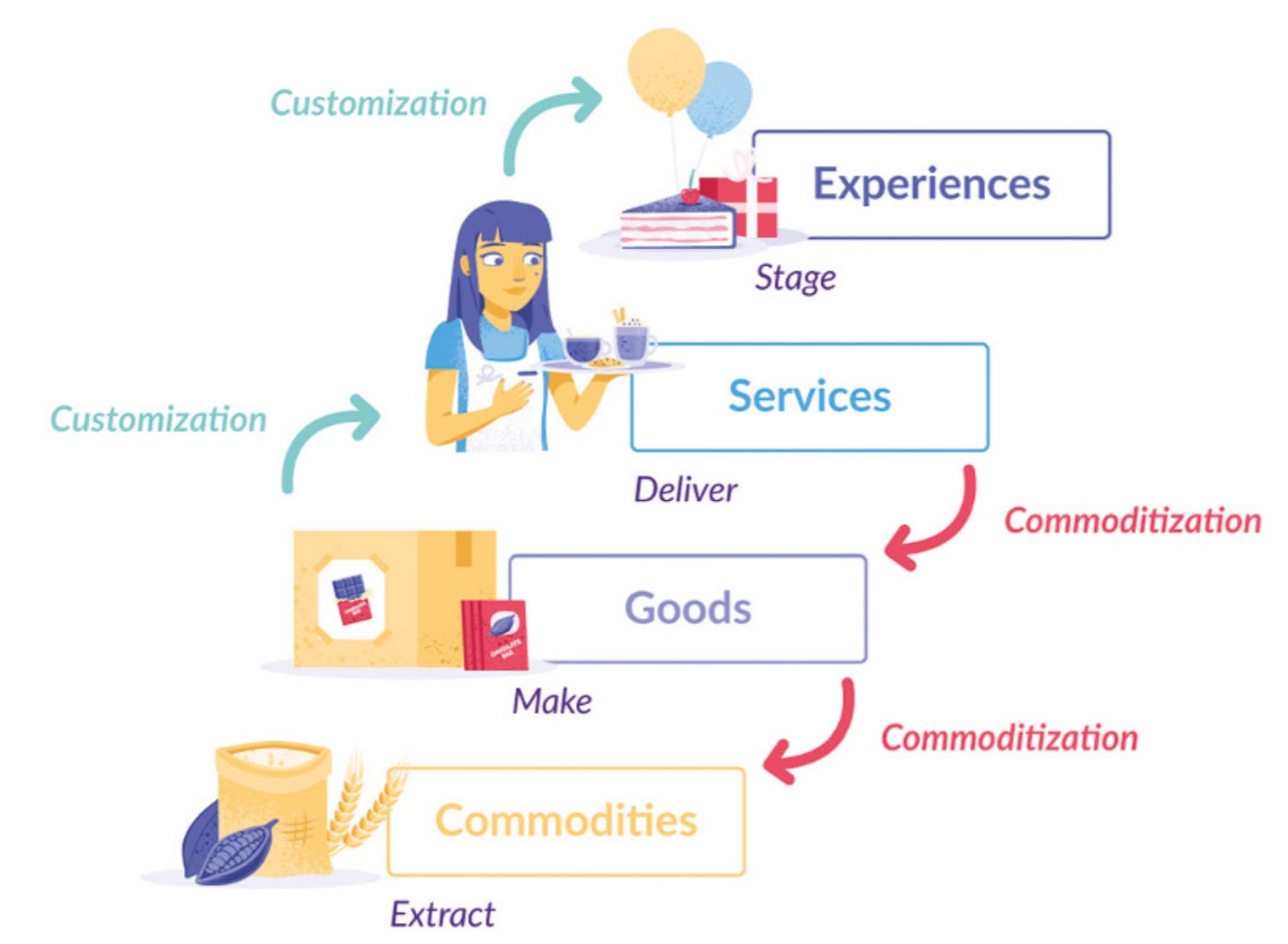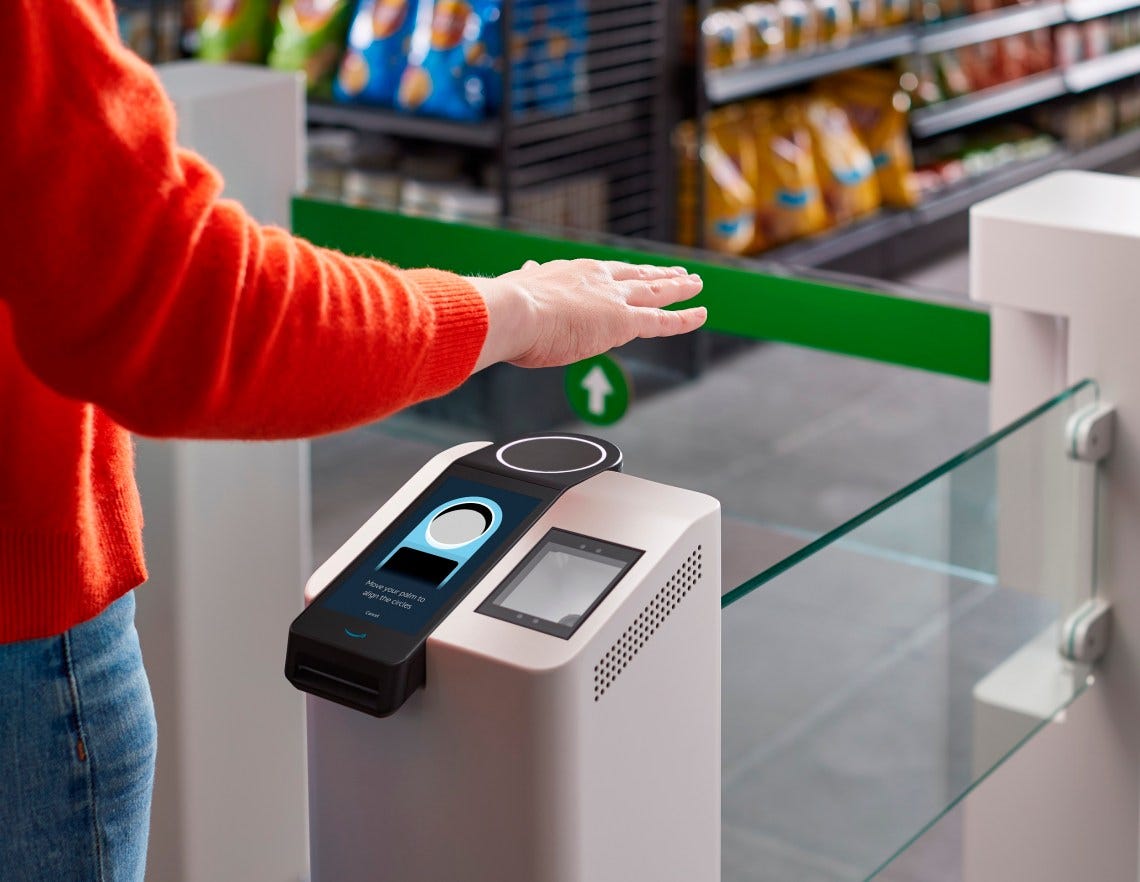Happy Friday and welcome back to This Week in Retail!
I took some much needed time off over the last month or so… For a quick life update, watch my COVID wedding story over on TikTok.
I’m excited to be back and dive into the ever-changing world of retail. This week I am sharing from my archives one of my favorite newsletters to date.
Next week I’ll be back with a new podcast & newsletter! In the meantime, feel free to follow me on my Tiktok and Youtube for daily updates.
Enjoy!
Last week, I talked about the shift towards commoditization that we’re seeing in the retail space today. But, not all retail will become commoditized. Branding is still important, and some categories are too emotional to ever be commoditized. So, what is the opposite of commoditization?
Personalization. On the other end of the spectrum from the Amazons and Walmarts of the world, we are seeing a flurry of retailers and brands emerging offering curated assortments of products and services personalized to their customer’s preferences.
If you know what you want to buy, you go to Amazon or Walmart for the convenience factor. But what do you do if you have no idea what you want or even need? There is too much information and are too many products available for the average consumer to sort through on their own. So, retailers and consumers alike are turning to algorithms to aid in this discovery process.
We’re seeing growth in the personalization sector from clothing retailers such as Stitch Fix and Thread to personalized haircare brands such as Prose and Function. Individuality is permeating every industry, but it will likely have an outsized impact on consumer products such as clothing, beauty, and accessories as in-store shopping is viewed as inconvenient and a potential health risk and traditional eCommerce is cumbersome and inefficient.
Discovery Driven Digital Transformation
Technology will play a critical role in this newly personalized world with algorithms at its core. Brands and retailers are capturing and utilizing customer data now more than ever, and the brands that can leverage that data to create a more meaningful connection with their customers through personalization will thrive.
The most interesting piece of this is the deeply entrenched business-to-customer relationship that this data collection and algorithm relationship creates. These personalized algorithms learn from consumer purchasing behavior and deliver tailored recommendations based on each interaction. Continued interaction with the algorithm will only make the personal recommendations more accurate and thus will further encourage use.
Think TikTok for everything.
In this type of business, the barriers to entry become so high because it’s impossible to recreate the millions of human-algorithm interactions.
Shopify is one of many retailers that is doing an exceptional job at driving personalization through its new app, Shop.
“Shop drives rediscovery of your brand through in-app recommendations that circle customers back to your store. A user’s Shops tab acts as a personalized shopping feed that populates with product picks, special deals, and new arrivals based on their purchase history and the brands they follow on Shop.”
We’ve seen the reinvention of the discovery process disrupt many industries; travel, social media to name a few. I believe that retail is next. Reimagining the discovery process is within retail will be the key to success in the future.
Best Podcasts of the Week:
-
Business of Fashion: Retail Reborn Episode 2 Building Smarter, More Sustainable Supply Chains
-
Glossy Podcast: Clearbanc’s Michele Romanow
-
Invest Like the Best: Rory Sutherland – Moonshots and Marketing
Retail + Tech News
-
Background: Walmart unveiled a new store design that is reported to impact 1,000 stores by the end of next fiscal year. The retailer is emphasizing speed and convenience into the new designs and integrating technology that speeds up check-out and allows customers to scan items as they shop to streamline the checkout process.
-
Details: With Amazon deeply integrating technology into the shopping experience, Walmart is starting to look very stodgy in comparison. This move feels underwhelming and shows how difficult it can be to integrate more disruptive tech into the legacy retail experience. As Amazon Go continues to expand it’s store size and footprint, the technology gap between the two retail behemoth’s seems to be growing.
-
Background: Amazon has been at the forefront of innovation within the retail space well before 2020, but since the beginning of the pandemic they have seized the opportunity to grow their business and brand into industries that no one would have expected. The tech giant is now imagining new ways for its customers to shop, pay, and experience the world.
-
Details: Amazon announced it’s new biometric payment system using palm recognition payment which will allow you to enter their Amazon Go stores by scanning your hand. The retailer has also launched a series of virtual experiences transforming the way that customers can shop. From virtual travel experiences to live stream shopping, Amazon keeps innovating and consumers keep buying.
Traditional Retail News
Disney Lays off 28,000 workers
-
Background: Disney, which lost an estimated $500 million for every two weeks that their theme parks were closed during the lockdown, lobbied in tandem with other large hotel chains to receive $250B in bailout funds from the US government.
-
Details: Now the company announced that they will be laying off 28,000 workers at their CA and FL theme parks as they try to recover from the financial blow of Coronavirus.
Percentage Rent Leases are Coming
-
Background: One thing in retail that became abundantly clear during this pandemic; if many retailers are to survive, their rent structures may need to change. While landlords are familiar with percentage rent, taking a portion of retail tenants’ in-store sales, now, some are thinking of bringing online sales into the equation.
-
Details: Landlords are exploring new options to guarantee rent and with sales shifting online, some property owners think that demanding a portion of a stores onlines sales may be necessary. There is very little precedent for this kind of agreement, however, this could completely change the business relationship between retailers and their landlords.
Follow me on Social!
-Jackie


Recent Comments